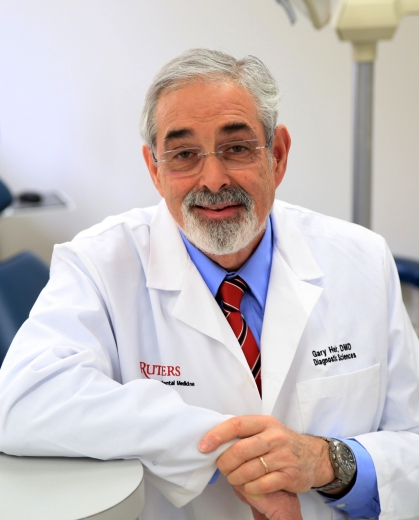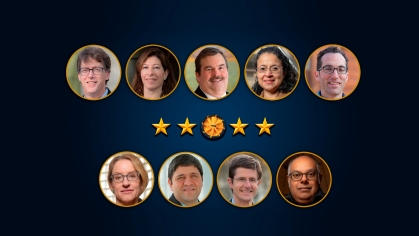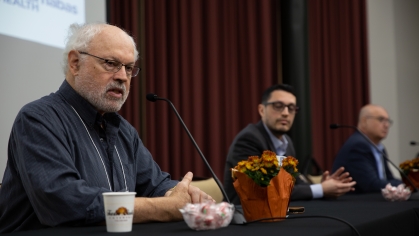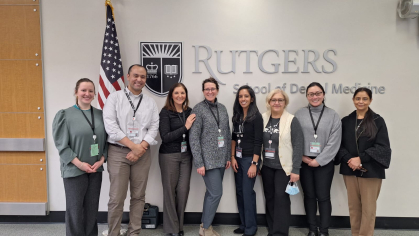Gary Heir Named Carmel Chair in Algesiology at the Rutgers School of Dental Medicine

The Rutgers University Board of Governors voted to approve Gary Heir as the Robert and Susan Carmel Chair in Algesiology at the Rutgers School of Dental Medicine, effective today.
The Carmel Chair, established in 1995 by a gift from Robert and Susan Carmel, supports a scholar with a distinguished record in algesiology, or the study of pain. It is the first professorship in the nation in algesiology dedicated to orofacial pain.
Heir is an internationally recognized expert in orofacial pain and temporomandibular disorders. He is the director of the Center for Temporomandibular Disorders and Orofacial Pain in the Department of Diagnostic Sciences at Rutgers School of Dental Medicine, which performs research and teaches this advanced field of dentistry focusing on the assessment, diagnosis and treatment of complex chronic orofacial pain disorders.
Over the past decade, Heir played a significant role alongside a committee of national orofacial pain program directors and the American Academy of Orofacial Pain to get orofacial pain recognized as the 12th specialty in dentistry by the American Dental Association in March 2020. He is also the signatory on the application to the National Commission on Recognition of Dental Specialties and Certifying Boards for recognition of the American Board of Orofacial Pain as the official certifying board for the specialty.
Currently, Heir directs the center at the dental school, one of only 12 postgraduate orofacial pain programs in the country accredited by the Commission on Dental Accreditation (CODA). He stressed the need for more accredited programs, citing the millions of patients who require treatment but have difficulty finding specialists.
“Patients’ access to care is a significant problem that can only be addressed by increasing the number of accredited postgraduate programs. Our postgraduate program in orofacial pain at Rutgers is recognized as one of the best in the country, if not worldwide. We are in the top tier of accredited orofacial pain programs, with postgraduate dentists applying from around the world. The accomplishments and high caliber of our numerous applicants is noteworthy,” he said.
The program at Rutgers has graduated over 50 students since its inception, and over 90 percent of graduates remain in academics, research or private practice focused on orofacial pain. Many have assumed leadership roles in academics and research.
The aim of the program, Heir stresses, is to provide a top-quality educational program that will provide excellent services for patients in need of care.
“Ultimately, our program is dedicated to three goals: to provide an exceptional post-graduate educational program in orofacial pain, to provide excellent services for our patients and to increase access to care by educating the public and all health care professions of the importance of orofacial pain for their management,” Heir said. “As far as we have come as a specialty, and as hopeful as we are for the future, we cannot lose sight of the need to focus on the patient. The services we provide are extraordinary, and we must continue to promote the specialty and emphasize that we are here for them. We can only benefit the vast community of patients through education of the role of the orofacial pain specialist and how to find us.”
In addition to his work at Rutgers, Heir is a highly sought-after lecturer, having delivered nearly 300 presentations on orofacial pain and related subjects in the region, in the country and throughout the world.
He has served on the boards of many professional organizations, including as the president of the American Academy of Orofacial Pain and the American Board of Orofacial Pain and as a member of CODA and the Council on Dental Education and Licensure. He was appointed by three of New Jersey’s governors for three consecutive terms as a member of New Jersey Governor's Lyme Disease Commission.
Heir has published more than 100 peer-reviewed articles, chapters and abstracts on orofacial pain and TMJ disorders. He also serves as the section editor for Orofacial Pain Neuroscience of The Journal of the American Dental Association.



